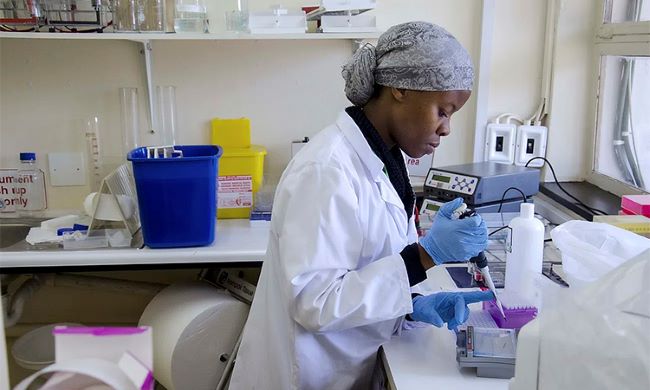The World Health Organisation (WHO) has listed two additional mpox in vitro diagnostics under its Emergency Use Listing (EUL) procedure to enhance quality-assured testing options.
The organisation stated this in a statement on Wednesday.
The organisation stated that “WHO’s EUL is based on the review of quality, safety and performance data in compliance with international standards, while addressing specific needs of Low- and Middle-Income Countries (LMICs).
“Polymerase Chain Reaction (PCR) testing, which detects viral DNA, is considered the gold standard for diagnosing mpox infection.”
The organisation identified the Xpert Mpox, a real-time PCR test manufactured by Cepheid under EUL procedure on Oct. 25 as test designed for use on compatible GeneXpert systems.
“The Xpert Mpox test is easy to operate and delivers results in 40 minutes. Once the cartridge is placed in the system, the process is fully automated, with real-time PCR detecting viral DNA of monkeypox virus clade II.
“The GeneXpert system is a near-point-of-care testing option which can support decentralised testing.”
The global health body added that another PCR-based option, the cobas MPXV assay, developed by Roche Molecular Systems, Inc., was listed on Oct. 14.
According to the statement, this was intended for use on the cobas 6800/8800 Systems.
“This tool is a real-time PCR test capable of detecting both mpox clades and delivering results in two hours.
“It can process multiple samples simultaneously and suitable for clinical laboratories that handle large volumes of tests,” it said.
It stressed that ensuring global access to mpox diagnostic test is essential for efficient and effective testing in settings affected by mpox outbreaks.
“Rapid access to those listed products is critical not only for prompt diagnosis and timely treatment but also for effectively containing of the spread of the virus,” it said.
WHO Director for Regulation and Pre-qualification, Dr Rogerio Gaspar, said WHO previously listed Alinity m MPXV assay, manufactured by Abbott Molecular Inc. under EUL on Oct. 3.
He said that in 2024, 18 countries reported more than 40,000 suspected mpox cases, with most remaining unconfirmed due to limited testing capacity, especially in LMICs.
According to him, in the Democratic Republic of the Congo, the hardest-hit country, testing has significantly increased in 2024, following efforts to decentralise testing with support from WHO and partners.
“However, the proportion of tested cases remain low, accounting for 40-50 per cent of suspected cases.
“WHO is working with manufacturers of the EUL-listed products and national regulatory authorities in affected countries to facilitate domestic registration or emergency listing.
“Fast-tracking approvals and applying reliance principles will enhance access to quality-assured mpox tests,” Gaspar said.
He said that overall, WHO received more than 60 expressions of interest for the EUL review of mpox diagnostic tests.
“However, seven of these progressed to EUL applications, with two products currently under review and two more expected soon.
“The status of active applications and listed mpox diagnostics under WHO EUL procedure can be seen on WHO webpages,” he said.
NAN



